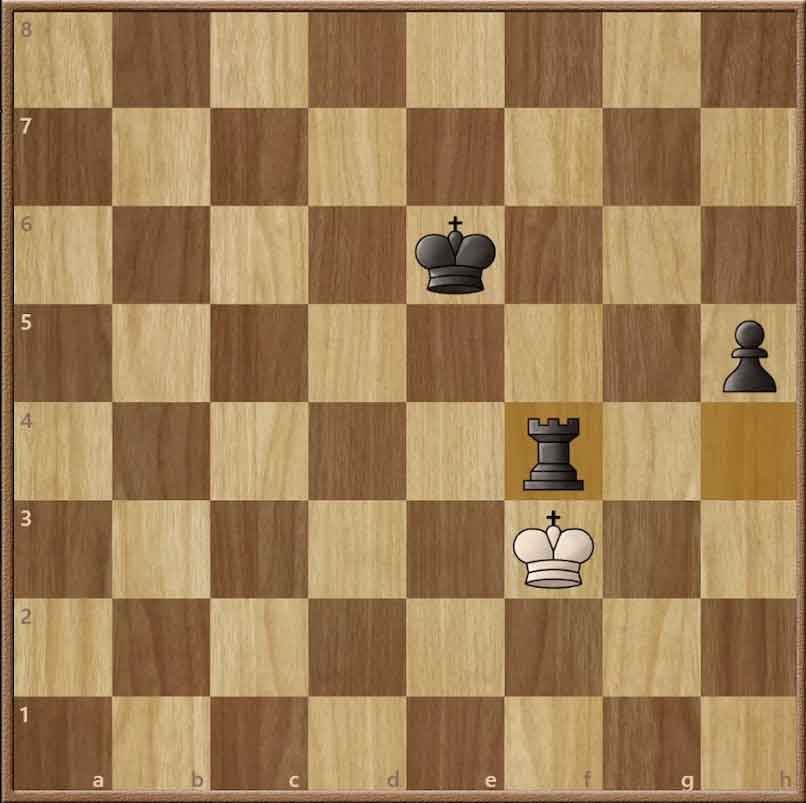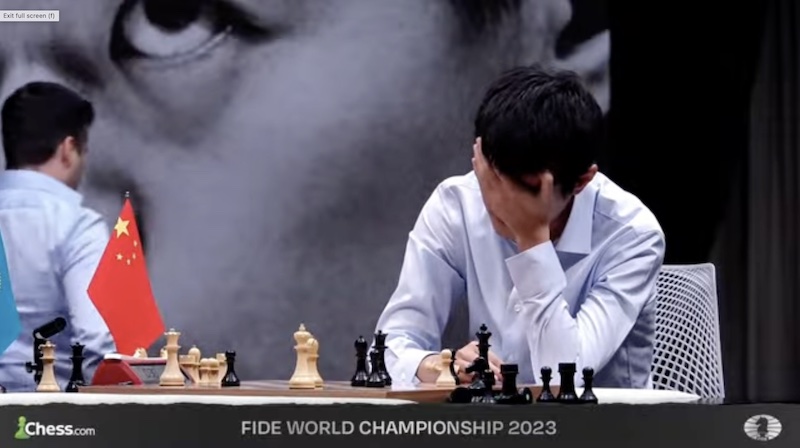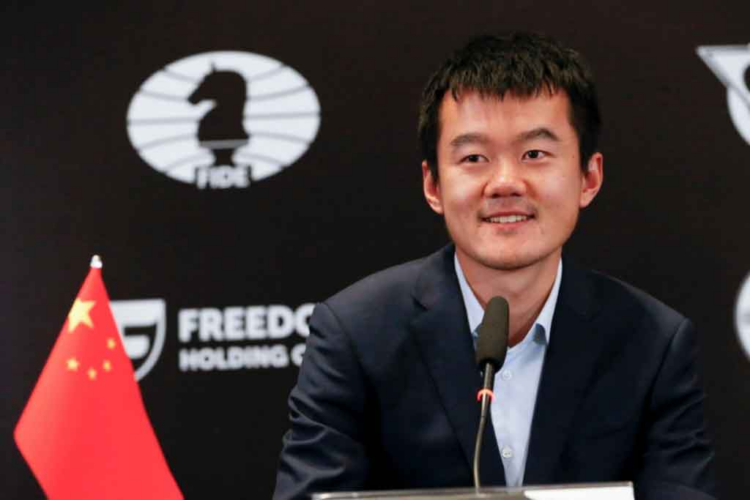On Sunday evening Ding Liren became the first Chinese person to ever win the World Chess Open Championship when he defeated Russian Ian Nepomniachtchi in a spectacular series of 18 games held from 9 to 30 April 2023 at the St Regis hotel in Astana, Kazakhstan.
Ding’s victory marks the end of the era with Norwegian Magnus Carlsen having been the world chess champion since 22 November 2013, almost a decade ago. Carlsen successfully defended his title in 2014, 2016, 2018 and 2021, but on 20 July 2022 dramatically announced he would not be defending his title in 2023, citing a “lack of motivation”.
The match between Ding and Nepomniachtchi was a thrilling affair with fans treated to a superb exhibition of incredibly exciting chess, with several spectacularly complex games – particularly games 6, 8 and 12.
Eight of the 14 regulation classical time format games were drawn – games 1, 3, 8, 9, 10, 11, 13 and 14 – with each player scoring half a point. For the other six games, three times Nepomniachtchi won a game to take a one-point lead only to see Ding equalize in their next decisive (non-drawn) game. This pattern occurred in games 2 and 4, games 5 and 6, and finally games 7 and 12.
Game 14 was an incredibly gruelling and exhausting affair. The game was effectively a sudden death contest given the players were tied at 6.5 points each after 13 games and that game 14 was the last of the regulation classical time format games – meaning that if there was a decisive winner of the game, that winner would have been crowned champion. However, after an incredible 90 moves over more than six hours, the players agreed to a draw with Ding (who was playing white) having only his king remaining on the board, on the f3 square, about to capture Nepomniachtchi’s rook on f4 to leave Nepomniachtchi with just his king on e6 and a lone pawn on h5 – a well-known forced draw position.

This left the two grandmasters tied at a score of 7 points apiece after the 14 classical time-format games. They could only be separated after a series of four dramatic tiebreak games in the rapid time format. Games 15, 16 and 17 were all drawn but Ding finally took home the crown on game 18 – the final match of the championship.
This meant that during the entire match Ding was never ahead of his opponent until the 18th and final game was complete. In the dying seconds and at the completion of game 18 both players became overwhelmed with emotion, with Ding playing a decisive a2 pawn move with just 59 seconds left on his clock. A look of devastation swept over Nepomniachtchi’s face, and with just 32 seconds left on his clock it became clear he was doomed. He looked away from the board, stunned, his hand started visibly shaking and he knocked over several captured pieces which were beside the board, with one falling to the floor. In desperation, he captured Ding’s a-pawn with his queen, gaining a further 10 seconds on his clock.
But Ding calmly captured Nepomniachtchi’s f4 pawn with his dark-squared bishop, neutralizing Nepomniachtchi’s own dark-squared bishop which had been stopping Ding queening his c-pawn.
With 31 seconds remaining, and facing an impossible board position, Nepomniachtchi nervously offered his hand to Ding, resigning the game, and the match. Ding shook the outstretched hand and instantly became overwhelmed with emotion, his forehead dropping onto his left hand. Nepomniachtchi struggled out of his chair and off the stage as quickly as possible, but not before accepting Ding’s outstretched hand, this time in a second and more meaningful handshake.
As Nepomniachtchi quickly left the stage, Ding couldn’t find the energy to stand up. Seemingly glued to the board, it was the best he could do not to cry. His forehead cradled in his left hand, and it was clear he was physically and emotionally spent from the intensity of the match which had lasted some 22 days. It took him a full 40 seconds to find the energy to stand up, knowing that as World Champion his life would never be the same.

With Ding’s victory, China now has the distinction of having both the open and the women’s championships – with Ju Wenjun the Women’s World Chess Champion since 20 May 2018.
Normally the open World Chess Championship – which is open to both men and women – is played approximately every two years between the incumbent world champion and a challenger who earns the right to participate by winning the so-called Candidates Tournament, an eight-person contest which has specific eligibility requirements determined by FIDE, the governing body for chess across the globe.
However, due to Carlsen’s withdrawal, the 2023 World Chess Championship was played between the winner and runner-up of the Candidates Tournament – Nepomniachtchi and Ding respectively.
Ding wins €1.1 million for his victory, with Nepomniachtchi picking up €900,000 for runner up. The 55/45 split of the €2 million prize pool was because the match went into the tiebreak phase. The pool was to be split 60/40 had the match been decided without any tiebreak games.
The classical time format allowed each player 120 minutes for the first 40 moves, 60 minutes for the next 20 moves, and 15 minutes for the rest of the game, with a 30-second increment per move starting with move 61. The rapid time format used in the series of four tiebreakers allowed just 25 minutes each with a 10-second increment after every move.
Had the match continued as tied after the fourth rapid time format tiebreaker, the players would have headed into the blitz time format, with a mere five minutes per player with a three second increment per move, and had the tie persisted after two such blitz games, they would have played a sudden death format with a maniacal 3 minutes per player with a 2-second increment, continuing indefinitely in the event of draws and with the winner of any game immediately crowned champion.
The next World Chess Championship will be held in 2024. The dates and venue are yet to be announced, but the Candidates Tournament will be played in Toronto, Canada, from 3 to 25 April 2024, implying the Championship itself will likely be in late 2024.








-120x86.jpg)



























